088 CD / Antonin Dvořák. Piano Trios Vol. 1
Description
"The Abegg Trio is a terrific group, and its recordings for Tacet have been almost uniformly outstanding. This Dvorák CD is no exception. They play with scrupulous attention to detail, excellent balances, gorgeous tone, and most importantly (for the "Dumky" Trio particularly), a welcome lightness of texture and enlivening sense of rhythm. (...) Once again the ABEGGs turn in performances that are second to none. (...) Sonics are, as always with Tacet, state of the art." (classics today)
4 reviews for 088 CD / Antonin Dvořák. Piano Trios Vol. 1
You must be logged in to post a review.
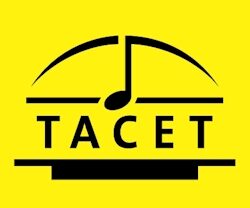
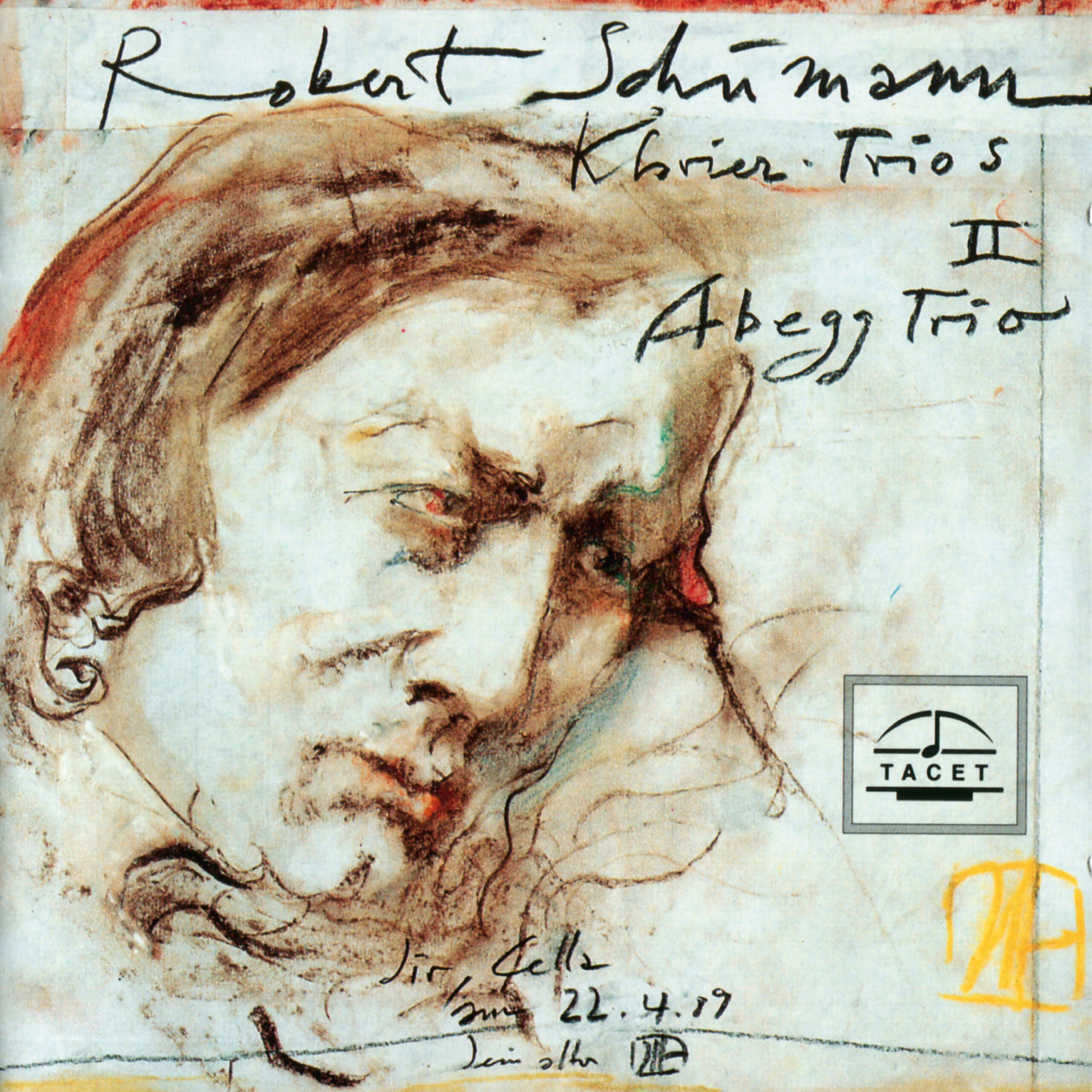
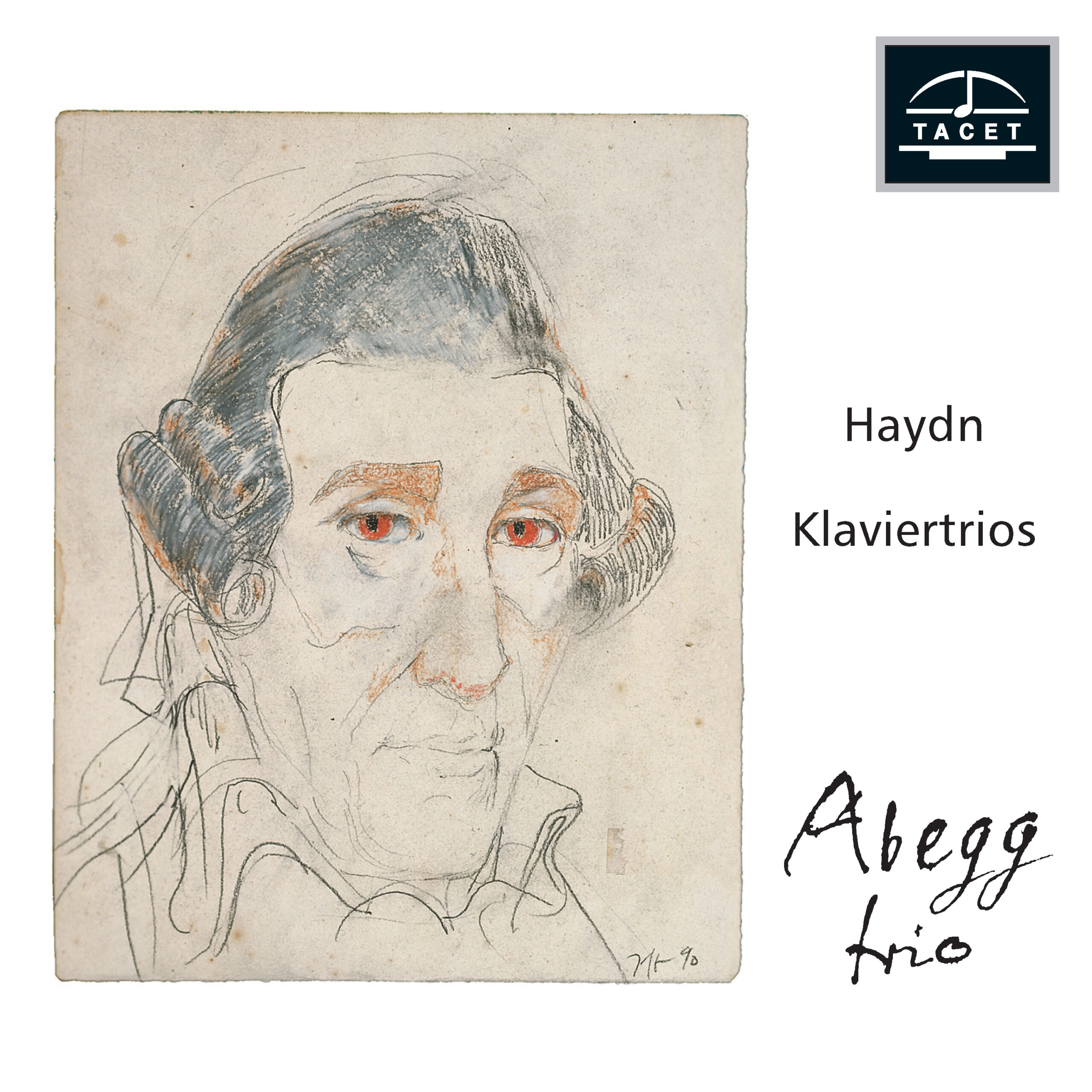
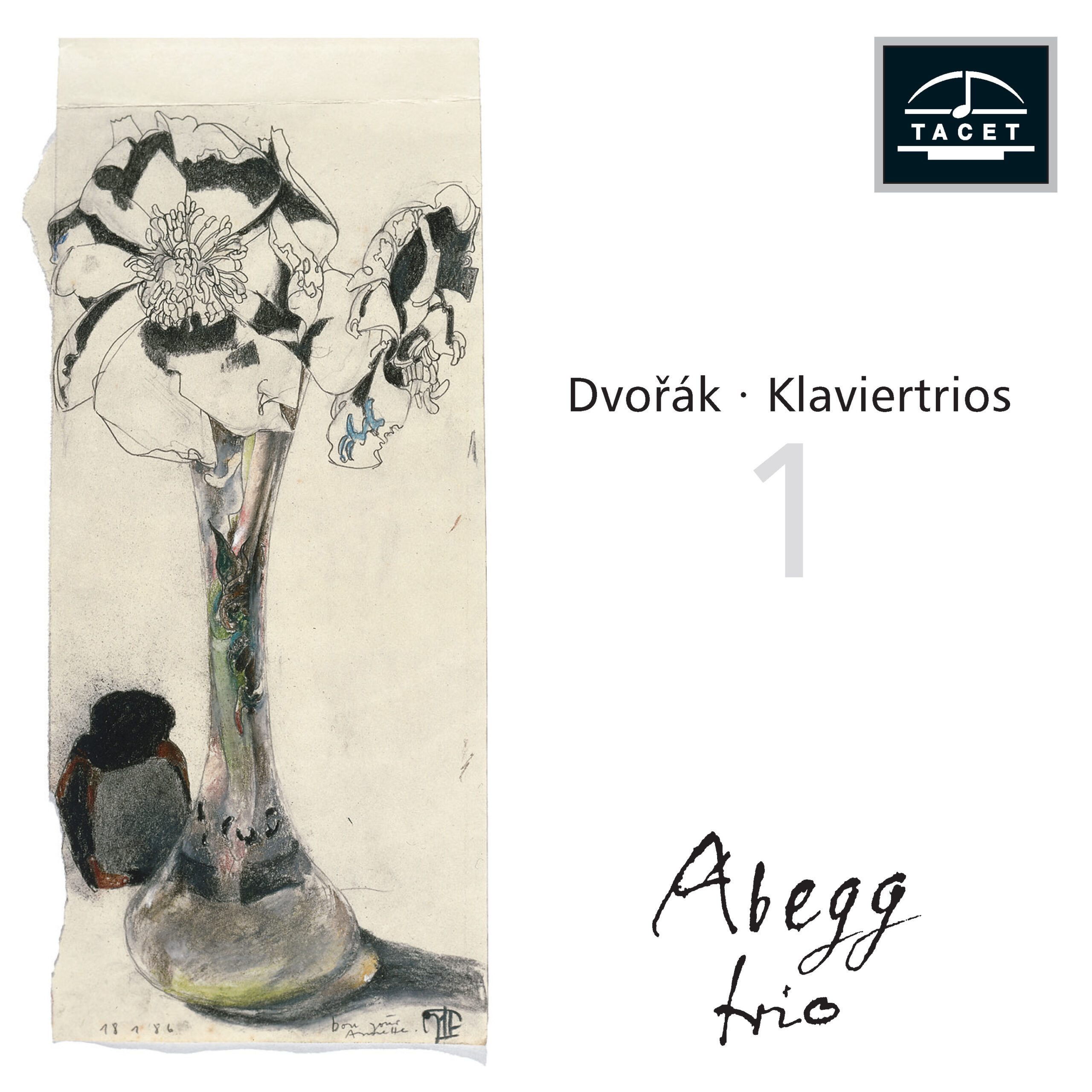
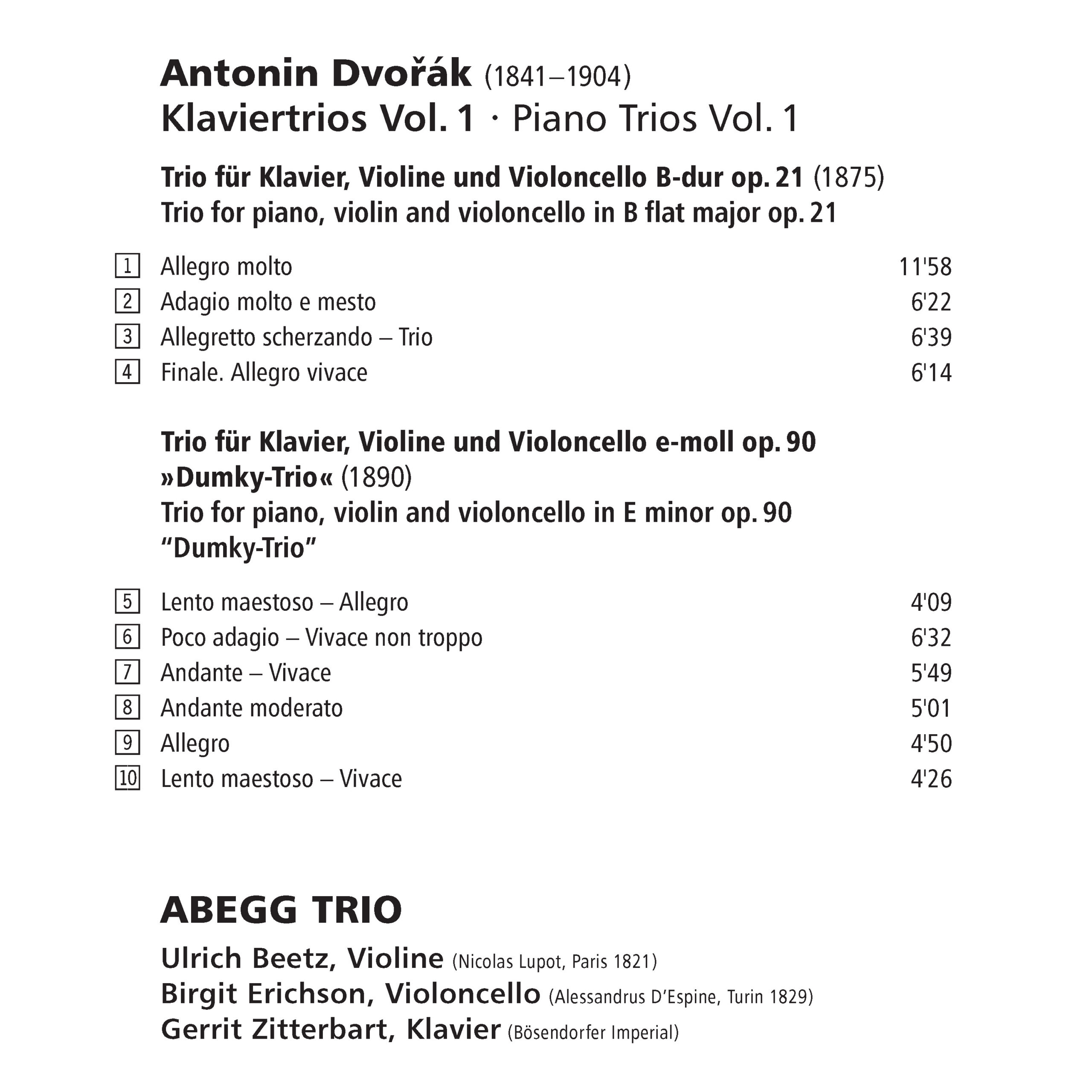

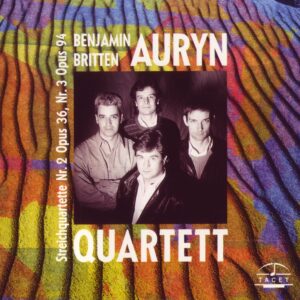
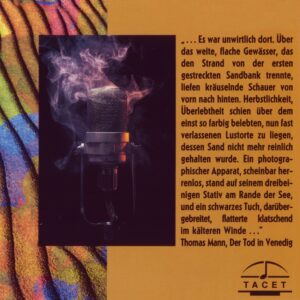
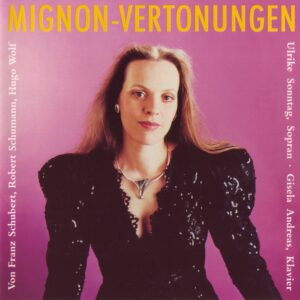
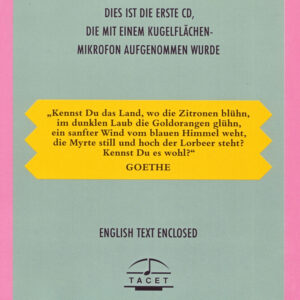
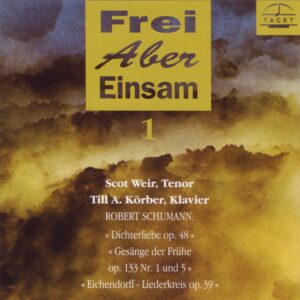
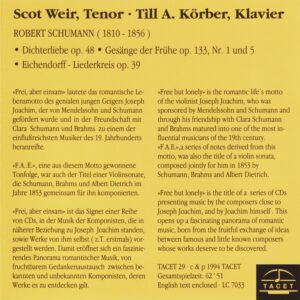
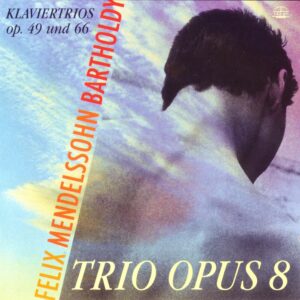
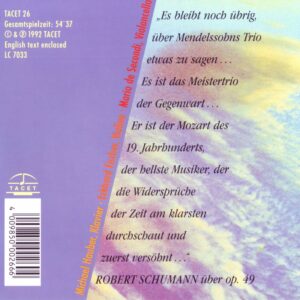
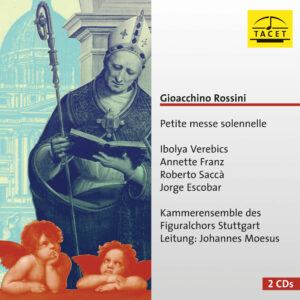
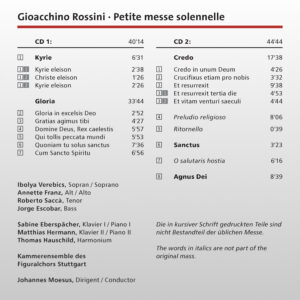
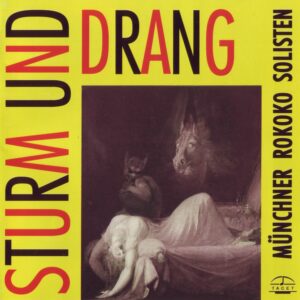

Gerhard Dietel –
Antonin Dvořák is often referred to as the “Bohemian arch-musician,” and not without a slightly condescending undertone. While his music is praised for its national character, it is simultaneously—due to its supposed naivety—denied true compositional quality and the capacity for “depth” of expression. In this CD recording by the Abegg Trio, however, Dvořák the composer is finally given the serious attention he deserves. The trio never succumbs to superficial “Bohemianism” in interpreting Dvořák’s specific idiom. In their performance of the Piano Trio in B-flat Major, Op. 21, one seems to hear a synthesis of Beethoven’s masculine gravity, Schumann’s momentum, and Schubert’s lyrical circling and harmonic reverie. Only in the “Allegretto scherzando,” with its polka-like tone, is the national color allowed to shine through more distinctly. Even more fascinating is the Abegg Trio’s interpretation of the well-known Dumky Trio. Ulrich Beetz (violin), Birgit Erichson (cello), and Gerrit Zitterbart (piano) initially take even more liberties than the score already permits. Their entrance is almost abrupt before they allow the music to dissolve into the prescribed Lento maestoso. There is no trace of comfortable mediocrity; the expressive ranges of the fast, dance-like and the slow, balladic sections are strongly polarized throughout. The musicians of the Abegg Trio take their time with the moments of stark uneventfulness and suspended sounds in Dvořák’s score, finding a wonderful narrative stance whose tempos can dramatically intensify depending on the unfolding action, only to return once more to a state of serene calm.
The Abegg Trio’s Mozart recordings have been hailed by critics as “reference recordings.” The same can be said of their interpretive achievement on this Dvořák CD, and one can only hope that it will be followed by recordings of the other two Dvořák piano trios of equally high caliber.
Gerhard Dietel
Bayern 4 Klassik Radio, CD Tipp –
The Abegg Trio enjoys not only an excellent reputation in the international chamber music scene, but also a distinctive hallmark: the cover illustrations of many of their CDs are by Horst Janssen, the Hamburg draftsman and graphic artist who passed away in 1995, known for his highly characteristic line. The covers of the two new CDs featuring Antonín Dvořák’s piano trios are adorned with a Janssen drawing titled Bonjour Annette—a glass vase with wide-open anemones beside an inkwell. A symbol of creativity and art, and thus also a symbol for the Abegg Trio, founded in 1976 (incidentally named after Robert Schumann’s Abegg Variations, Op. 1). As these Dvořák recordings show, however, creativity in the Abegg Trio is underpinned more by stylistic assurance and meticulousness than by spontaneous, playful musicianship. The Dvořák cliché of the composer whose “Bohemian soul,” or whatever is commonly assumed to stand for it, is palpable, is not necessarily served by this trio. This in no way detracts from the depth of expression—and Ulrich Beetz (violin), Birgit Erichson (cello), and Gerrit Zitterbart (piano) once again demonstrate that they are a top-class chamber ensemble. Schubert casts a greeting, and Brahms served as a model for Antonín Dvořák’s piano trios, which belong to the most beautiful works in this chamber music genre at the close of the 19th century. As intensely atmospheric as they are, the tone of the instruments plays a major role in their interpretation. In this respect, too, the Abegg Trio earns an additional point: Ulrich Beetz and Birgit Erichson play on historical instruments. For Trios Op. 21 and Op. 90 they use 19th-century instruments; for Trios Op. 26 and Op. 65 on CD number 2, their choice fell on a Guarneri del Gesù violin (Cremona, 1741) and a Matteo Goffriller cello (Venice, 1720). And the fundamental decision to use a Bösendorfer piano, which best complements the rich string sound, proves successful here as well: sensual power, finely balanced.
Jürgen Seeger
Fono Forum –
These two recordings (TACET 88 Dvořák Piano Trios / TACET 89 Haydn Piano Trios) are simply thrilling. They meet every expectation one could reasonably place on the renowned Abegg Trio, based on their recordings of works by Mozart, Beethoven, or Debussy. This is consummate chamber music-making—marvelously balanced. Each of the three performers responds with the utmost sensitivity to every movement of the other two partners. What is particularly striking about these two interpretations, each perfectly cohesive in itself and carefully distinguished stylistically from the other, is their improvisatory gesture—the “planned” immediacy and seeming spontaneity. The Abegg Trio, however, approaches this with disciplined precision, achieving an absolutely convincing balance between soloistic virtuosity and harmonious ensemble playing, allowing a vast array of expressive and rhythmic facets to shine—every metronome marking meticulously observed. They highlight the brilliance of the popular rondo from Haydn’s Trio No. 39 just as much as the touching depth of feeling in Dvořák’s Adagio from Op. 21, which is entirely free of false sentimentality. Jan Reichow, who wrote the insightful introductory texts for both recordings, refers to Haydn’s music as exhibiting “eloquent perfection.” Rarely is there such a perfect alignment between verbal commentary and the music that actually sounds, as with these two interpretations—which are also, from a recording-technical standpoint, exemplary.
Ingeborg Allihn
Classics Today –
10/10 Reference Recording – „This one“
The Abegg Trio is a terrific group, and its recordings for Tacet have been almost uniformly outstanding. This Dvorák CD is no exception. They play with scrupulous attention to detail, excellent balances, gorgeous tone, and most importantly (for the "Dumky" Trio particularly), a welcome lightness of texture and enlivening sense of rhythm. The problem with the "Dumky" is one of differentiation: its six movements can take on a monotonous sameness if the players fail to make the most of the contrasts within each. Fortunately, the ABEGG Trio seems to be aware of this pitfall--while adopting swift tempos overall, the ensemble leaves plenty of margin not only between quick and slow tempos within a movement, but also between them. Thus, the first movement and finale′s Lento maestoso isn′t the same as the second movement′s Poco adagio, or the third movement′s Andante.
The Trio in B-flat, Dvorák′s first, is one of his most successful early chamber works, full of good tunes effectively scored for the three players. Once again the ABEGGs turn in performances that are second to none. They′re particularly effective in the second movement′s Adagio molto e mesto (sad), which has a tender poignancy that never becomes maudlin. Sonics are, as always with Tacet, state of the art.
David Hurwitz